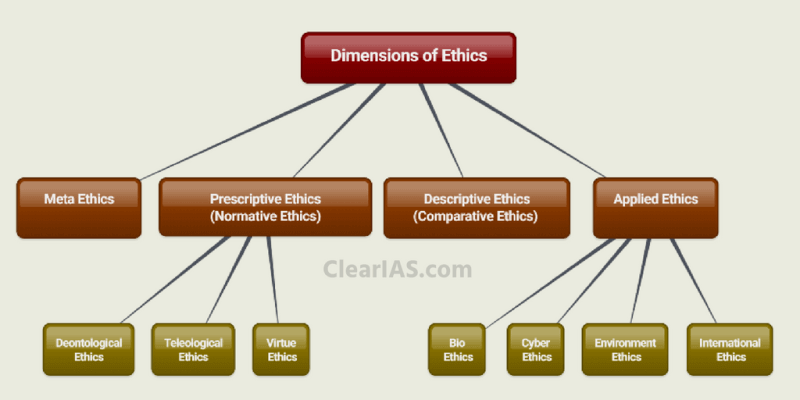Ethics, the philosophical discipline concerned with moral standards and ideals, has always been an important element of human existence. It influences our actions, interactions, and decision-making. Ethics offers a set of rules that help us distinguish between what is right and what is incorrect, what is good and what is evil, and what is just and what is unfair. This essay will go over the eight different kinds of ethics that are widely recognized and examined in philosophy.
Are you interested in the various kinds of principles that regulate human behavior? Continue reading to discover the eight kinds of ethics that have influenced moral thought for millennia.
Ethics is an important area of study because it helps people comprehend their moral duties and responsibilities. Cultural, institutional, and social variables frequently form ethical principles. However, eight kinds of ethics have been recognized as global and ageless. These ethical theories serve as a foundation for ethical decision-making and assist people in navigating complicated moral quandaries. Let's take a deeper look at the eight different kinds of ethics.
Ethics of Virtue
Virtue ethics is an ethical theory that emphasizes the value of cultivating positive character qualities. The emphasis is on developing qualities such as bravery, honesty, and kindness, which are necessary for living a decent existence. Rather than norms or repercussions, virtue ethics is concerned with the individual's character and the way they conduct their lives.
Deontological Ethics
Deontological ethics, also known as responsibility ethics, is an ethical theory that emphasizes the significance of adhering to moral standards and fulfilling one's obligations. According to this view, acts are inherently right or incorrect, independent of their effects. Deontological ethics is concerned with the motivations behind actions rather than the results of those actions.
Ethical Consequences
Consequentialist ethics, also known as teleological ethics, is an ethical theory that emphasizes the significance of acts and their effects. According to this theory, acts should be evaluated based on their results rather than their objectives. The goal of consequentialist ethics is to maximize the benefit for the largest number of individuals.
Utilitarian Ethics
Utilitarian ethics is a type of consequentialist ethics in which the significance of maximizing pleasure and minimizing pain is emphasized. According to this theory, acts should be evaluated based on their ability to produce the most pleasure for the largest number of people. Utilitarian ethics is preoccupied with maximizing general happiness as opposed to individual happiness.
Ethics of Care
Care ethics is a philosophy of ethics that emphasizes the significance of providing for others. According to this theory, ethical choices should be made based on individual connections and the effect of acts on those relationships. Care ethics is preoccupied with sensitivity, kindness, and other people's well-being.
Feminist Ethics
Feminist ethics is an ethical theory that focuses on gender equity and the abolition of injustice. According to this theory, ethical choices should be founded on the effect of acts on marginalized groups, especially women. Feminist ethics is preoccupied with social fairness and the abolition of prejudice.
Relational Ethics
Relational ethics is an ethical theory that emphasizes the value of interpersonal connections and interdependence. According to this theory, ethical choices should be founded on the effect of acts on relationships and societies. The goal of relational ethics is to promote teamwork, partnership, and dependency.
Natural Law Ethics
Natural law ethics is an ethical theory that emphasizes the significance of adhering to nature's order. According to this theory, acts should be evaluated based on their conformity to natural rules and principles. The protection of order, security, and harmony in the environment and civilization is central to natural law ethics.
FAQs:
Q: What is the most prevalent form of principles used in daily life?
A: There is no one-size-fits-all response to this issue because different people and societies value various ethical methods. However, some ethical methods that are widely used in daily living include virtue ethics, consequentialist ethics, and care ethics.
Q: Are these ethical perspectives mutually exclusive?
A: No, these ethical perspectives are not mutually exclusive. Indeed, many ethical quandaries necessitate the evaluation of numerous ethical methods in order to reach a complete answer.
Q: Can one person make decisions based on numerous kinds of ethics?
A: Yes, different kinds of principles can be used in decision-making. Indeed, many ethical quandaries necessitate the evaluation of numerous ethical methods in order to reach a complete answer.
Conclusion:
To summarize, ethics is a complicated subject with numerous methods to comprehend moral concepts. The eight kinds of ethics discussed in this essay each provide distinct views into ethical decision-making and can be implemented in various situations. By examining these various methods, we can gain a more detailed grasp of ethics and how it applies to our daily lives.


:max_bytes(150000):strip_icc()/business-ethics_final-78b960a3df9a4f5b9b44b77e831323b2.jpg)
